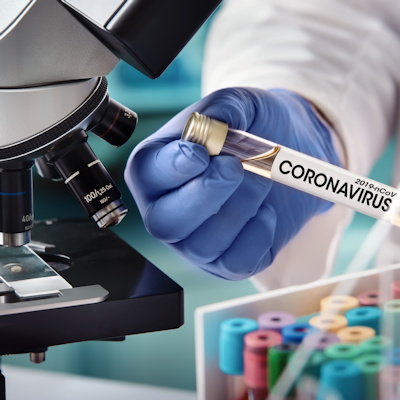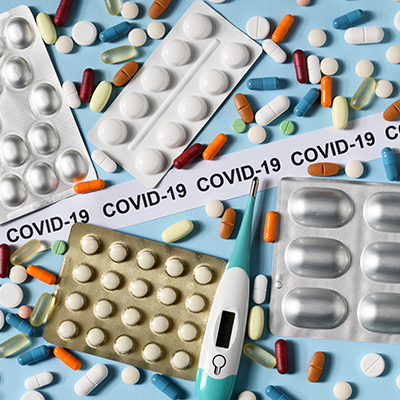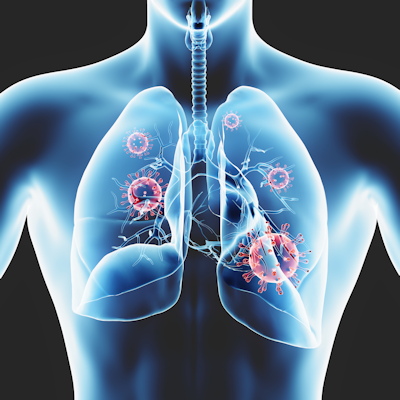March 6, 2023 -- Researchers have created an artificial intelligence (AI)-based algorithmic tool that calculates how to effectively repurpose current drugs to combat both COVID-19 and future pandemics.
The work, reported March 6 in Heliyon, may enable a quicker response to public health crises, the researchers said.
SARS-CoV-2 -- the virus that causes COVID-19 -- has proven to be a daunting medical and social challenge over the past three years. Although vaccines and hygienic practices have lessened its severity, COVID-19 continues to spread, causing illness and fatalities. This is due in part to the virus's ability to rapidly diversify its variants, immune response pathways, and modes of transmission. These traits make traditional approaches to vaccine and drug design less effective than they have been for previous diseases.
While the current pandemic has accelerated the need for efficient identification of potential COVID-19 drug candidates, knowledge about the host-immune response to SARS-CoV-2 infection remains limited, with few drugs approved to date.
The team investigated an approach aimed at closing the preparedness gap in the event of future pandemics -- i.e., repurposing existing drugs in advance. Identifying and selecting the best drug candidates ahead of time can potentially help defer costly and time-consuming in vitro and in vivo experiments and clinical trials, facilitating disease-specific drug development.
To accomplish this, the researchers developed a systems biology tool: the Phenotype Simulator (Phensim). Phensim simulates the tissue-specific infection of SARS-CoV-2 host cells. By leveraging available transcriptomic and proteomic databases, the tool allows modeling of SARS-CoV-2 infection in host cells, then performs a series of computer -- in silico -- experiments to determine the viral effects on the cellular host-immune response with high sensitivity and specificity, resulting in specific cellular SARS-CoV-2 signatures. It then utilizes these cell-specific signatures to identify the best candidate drugs for repurposing.
Utilizing Phensim, along with domain expertise, the researchers identified several potential COVID-19 drugs, including methylprednisolone and metformin. They further discerned key cellular SARS-CoV-2-affected pathways as potential druggable targets for COVID-19. They confirmed the validity of the tool by comparing their results with recently published in vitro studies, and concluded that Phensim and other drug repurposing strategies can potentially provide an effective approach for quickly targeting potential new interventions.
Medical immunologist and lead author Naomi Maria, PhD, is part of RxCovea, a multidisciplinary group that seeks to develop innovative strategies to address COVID-19. "There is no silver bullet to defeat the COVID-19 pandemic as it takes us over a public health roller coaster of deaths and devastation," noted Maria in a statement. "However, using this AI tool, coupled with in vitro data and other resources, we've been able to model the SARS-CoV-2 infection and identify several currently available COVID-19 drugs as potentially effective in battling the next outbreak."
Copyright © 2023 scienceboard.net












